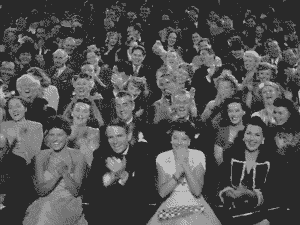Not meaning to detract from Rob’s post, or the many good comments that have been made regarding children players and parents, but I felt I wanted to relate an incident that happened to me last Saturday.
Last Saturday I was helping direct the Boylston CC Sept. Quads. A father and his 6 year old son came in and were asking about the strength of the lower part of the tourney. It turns out his son was rated around 650. We had a couple 11xx, 12xx, and then we went into 14xx players. They decided things were just a bit too strong for Eric. Yea, you want strong competition, but there can be a limit when you’re six.
So, not needing to play the role of House Man for the first round, and not wanting these folks to have come all this way for nothing, I offered to play Eric an official game. I explained that I was returning to chess after more than 11 years and that, currently, my rating was 1036. They agreed.
So this was an official game: clock, scoresheet, and in my case, little participant flags. One of my trademarks is having (at this level) little state flags for the participants in my games. It sort of “classes up” the games and really has been very well received when I’ve done it. Something I will remember for the rest of my life is asking Eric, “Eric, what state do you live in?” With the size of the states in New England you can’t assume anything!
With shining eyes Eric looks at me, “China!” he says.
“No,” I say. “China’s a country. I also think its a little incorrect.”
Thinking another moment Eric says, “Waltham!”
Smiling, his father says, “No. Waltham’s the town. What state do we live in?” But I had the info I needed. Eric got a little MA flag on his side of the board.
We sat down. The last thing his father said was, “You have a lot of time, Eric, much more than you usually do.” Then he went two tables away, sat down, and started reading a book. He didn’t move for the entire game.
For his part, I thought Eric was great. He kept score. He handled his clock well. About the only thing he’ll need to grow out of was a predilection for sometimes tapping his pieces with his pencil. We played to an endgame of a few pawns, and one minor piece each. He was actually 1 pawn up, but it wasn’t passed. I felt we could have moved those minor pieces around all afternoon so for only the third time in the 33 years I’ve been playing, I made a move, looked at Eric, and said, “Eric, do you want a draw?”
Eric looked at the board, looked at me, considered for three seconds, and the reached his hand out to me to shake saying, “Yea! Draw!”
“OK,” I said. Only then did his father come over.
Again, I don’t want to distract from Rob’s post, and a lot of the comments that we’ve read here have been spot on. But I thought I’d just relate a story indicating what we all know - sometimes, even with very young kids, it works. Sure, one part of me really didn’t like drawing to a 650 six-year-old, but another, better, part of me looks very forward to seeing Eric again. I think he may turn into a fine addition to the chess community.
